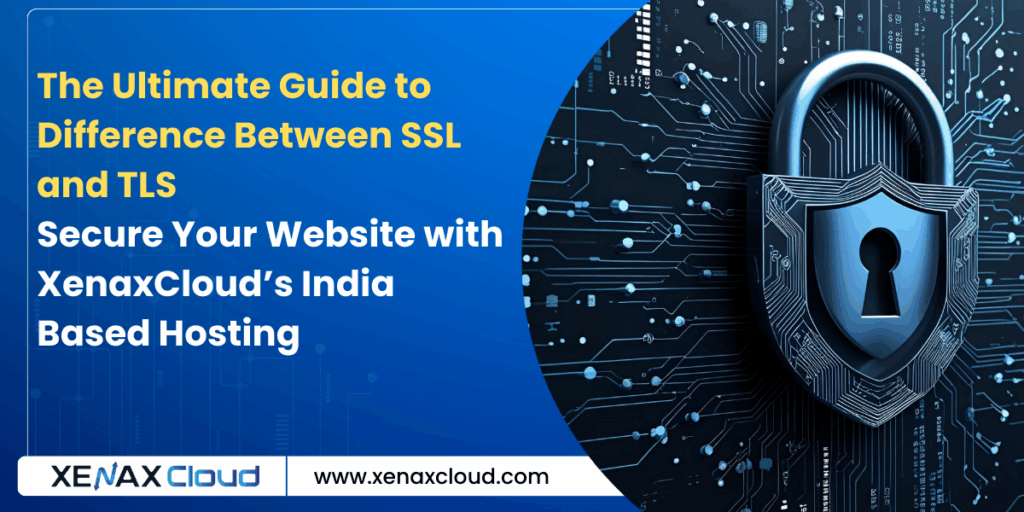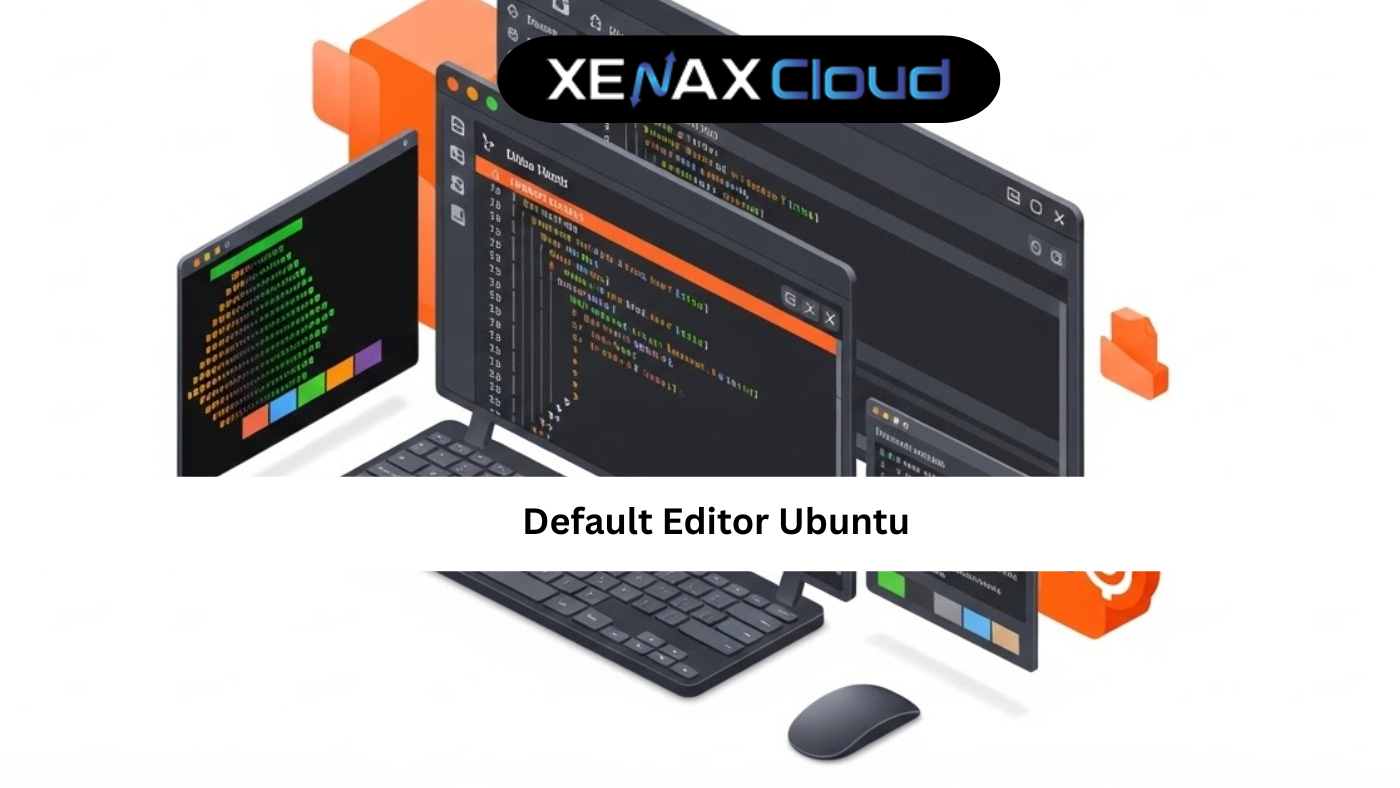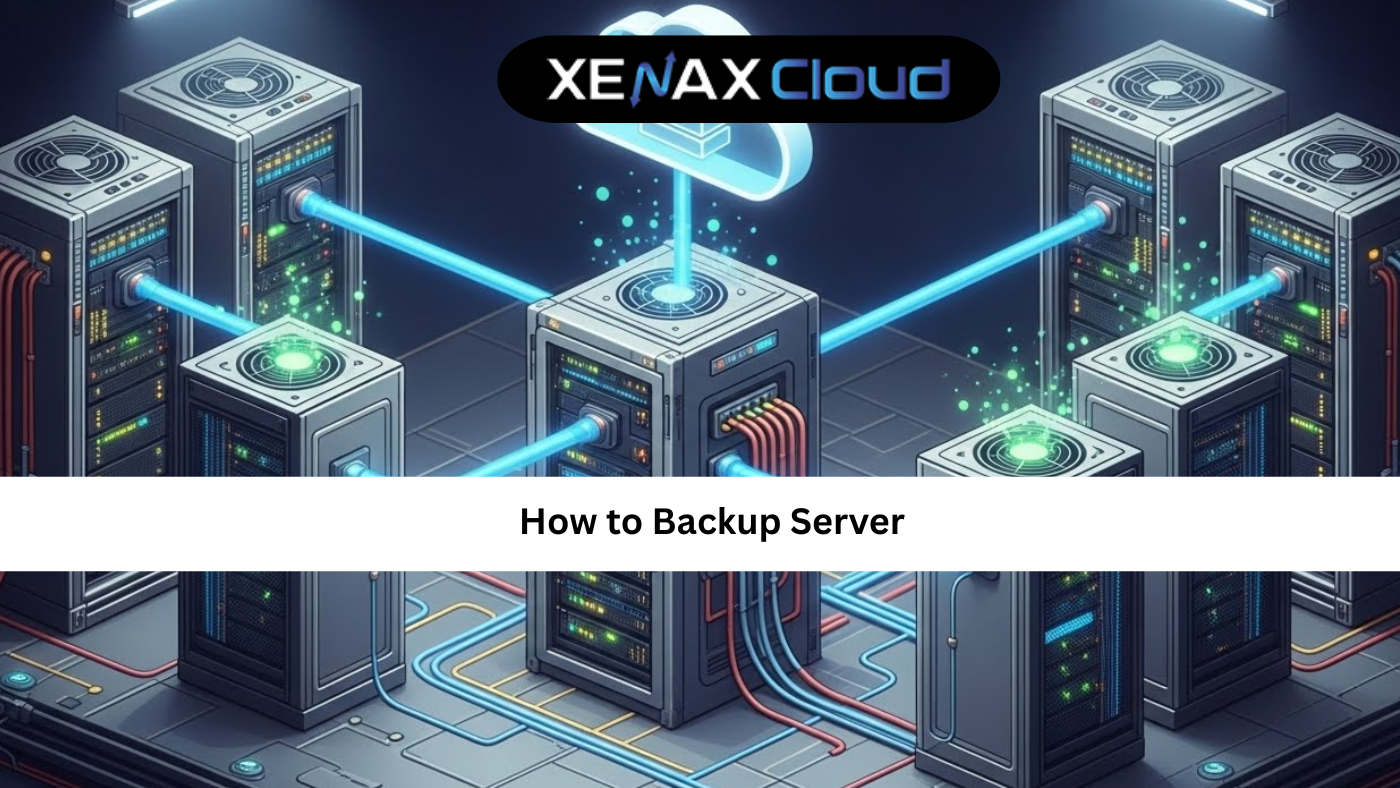In India’s digital economy, securing websites is critical, and understanding the difference between SSL and TLS is key for businesses and developers. SSL (Secure Sockets Layer) and TLS (Transport Layer Security) are protocols that encrypt data, ensuring safe online transactions. XenaxCloud (https://xenaxcloud.com/), with its India-based data centers, provides free SSL/TLS certificates across its hosting solutions, delivering a 99.5% uptime guarantee.
This guide explains difference between SSL and TLS, SSL termination, TLS termination, and how XenaxCloud’s hosting—VPS (https://xenaxcloud.com/vps-server/), dedicated servers (https://xenaxcloud.com/dedicated-server/), and more—ensures secure, high-performance websites. Optimized for SEO with keywords difference between SSL and TLS, SSL termination, and TLS termination, this article focuses on features and value without pricing or money-back guarantees.
What is the Difference Between SSL and TLS?
Difference between SSL and TLS: SSL, introduced in the 1990s, was the first protocol for secure data transfer. TLS, its successor, offers enhanced security and performance:
- SSL: Older, less secure, with versions like SSL 3.0 now deprecated.
- TLS: Modern, with versions like TLS 1.3 offering stronger encryption and speed.
TLS is widely used for websites, APIs, and email servers. XenaxCloud’s hosting includes free SSL/TLS certificates, ensuring secure connections.
What are SSL Termination and TLS Termination?
SSL termination and TLS termination refer to decrypting encrypted data at the server:
- SSL Termination: Decrypts SSL traffic, reducing server load but requiring secure backend handling.
- TLS Termination: Decrypts TLS traffic, optimizing performance for modern websites.
XenaxCloud’s servers handle TLS termination efficiently, supporting secure e-commerce and applications.
Benefits of SSL/TLS with XenaxCloud
Using SSL/TLS with XenaxCloud’s India-based hosting offers:
- Security: Protects user data like logins and payments.
- SEO Boost: Google prioritizes HTTPS sites.
- Trust: Displays padlock and HTTPS, building user confidence.
- Performance: TLS 1.3 and LiteSpeed servers enhance speed.
- Compliance: Meets India’s data protection laws.
Our 99.5% uptime guarantee ensures constant availability.
XenaxCloud’s Secure Hosting Features
XenaxCloud’s hosting, with free SSL/TLS, includes:
- Shared Hosting (https://xenaxcloud.com/shared-hosting/): Affordable for small sites with SSL/TLS.
- VPS Hosting (https://xenaxcloud.com/vps-server/): Scalable with root access for custom SSL/TLS setups.
- Dedicated Servers (https://xenaxcloud.com/dedicated-server/): High-performance for secure apps.
- Indian RDP (https://xenaxcloud.com/indian-rdp/): Secure remote management.
- Reseller Hosting (https://xenaxcloud.com/reseller-hosting/): Offer secure hosting to clients.
- Domains (https://xenaxcloud.com/domain/): Seamless SSL/TLS integration.
Features include cPanel/WHM, DDoS protection, JetBackup, and a 99.5% uptime guarantee.
Why India-Based Hosting Matters for SSL/TLS
XenaxCloud’s India-based data centers provide:
- Low Latency: Faster SSL/TLS handshakes for Indian users.
- Compliance: Adheres to India’s Digital Personal Data Protection Act.
- SEO Advantage: Local servers boost rankings for Indian searches.
- Support: 24/7 assistance in IST.
These ensure secure, high-performance hosting.
How XenaxCloud Enhances SSL/TLS Hosting
XenaxCloud’s hosting optimizes SSL/TLS:
- Free Certificates: Auto-installed via cPanel.
- LiteSpeed Servers: Speed up TLS handshakes.
- Security: DDoS protection and firewalls.
- Backups: JetBackup for data safety.
Use Indian RDP (https://xenaxcloud.com/indian-rdp/) for secure SSL/TLS management.
Comparing XenaxCloud with Competitors
XenaxCloud excels in secure hosting:
- Hostinger: Lacks India-based servers, impacting latency.
- Bluehost India: Limited SSL/TLS optimization.
- SiteGround: High performance but not India-centric.
With a 99.5% uptime guarantee, XenaxCloud is ideal for difference between SSL and TLS.
Integrating SSL/TLS with XenaxCloud’s Ecosystem
XenaxCloud’s hosting integrates with:
- Shared Hosting (https://xenaxcloud.com/shared-hosting/): SSL/TLS for small sites.
- VPS Hosting (https://xenaxcloud.com/vps-server/): Custom SSL/TLS configurations.
- Dedicated Servers (https://xenaxcloud.com/dedicated-server/): Secure high-traffic apps.
- Reseller Hosting (https://xenaxcloud.com/reseller-hosting/): Offer secure hosting.
Pair with domains (https://xenaxcloud.com/domain/) for seamless setups.
Getting Started with XenaxCloud’s Secure Hosting
- Visit https://xenaxcloud.com/ and choose a hosting plan.
- Register a domain via https://xenaxcloud.com/domain/.
- Request free migration for existing sites.
- Enable SSL/TLS via cPanel or SSH.
Our 24/7 support in IST ensures a smooth setup.

FAQs
What is the difference between SSL and TLS?
Answer: SSL is an older encryption protocol; TLS is its modern, more secure successor with better performance.
What is SSL termination?
Answer: Decrypting SSL traffic at the server to optimize performance, supported by XenaxCloud’s hosting.
What is TLS termination?
Answer: Decrypting TLS traffic at the server, enhancing speed for modern websites.
Why choose XenaxCloud for SSL/TLS hosting?
Answer: India-based servers, 99.5% uptime, free SSL/TLS, and LiteSpeed ensure secure performance.
Does XenaxCloud offer free SSL/TLS?
Answer: Yes, included with all hosting plans (https://xenaxcloud.com/).
Can I manage SSL/TLS remotely?
Answer: Yes, with secure Indian RDP (https://xenaxcloud.com/indian-rdp/).
Is reseller hosting secure with SSL/TLS?
Answer: Yes, offer secure hosting via https://xenaxcloud.com/reseller-hosting/.
Conclusion
Understanding the difference between SSL and TLS is crucial for secure websites. XenaxCloud’s India-based hosting, with free SSL/TLS and a 99.5% uptime guarantee, ensures safety and performance. Visit https://xenaxcloud.com/ to secure your site today.






